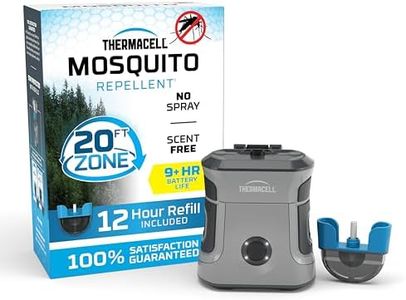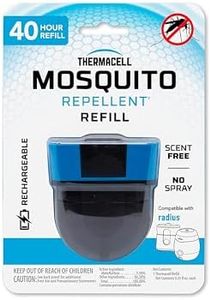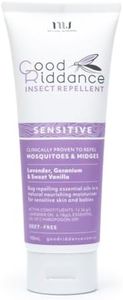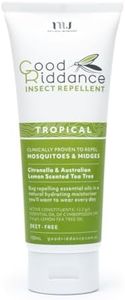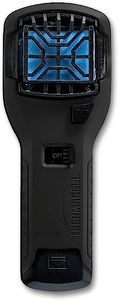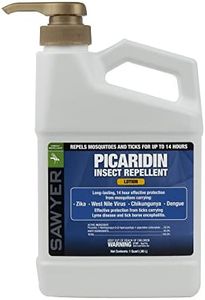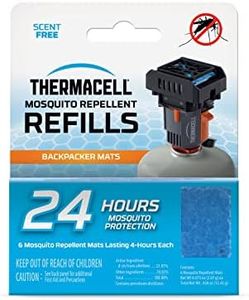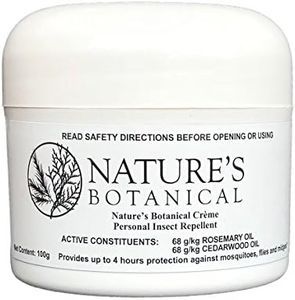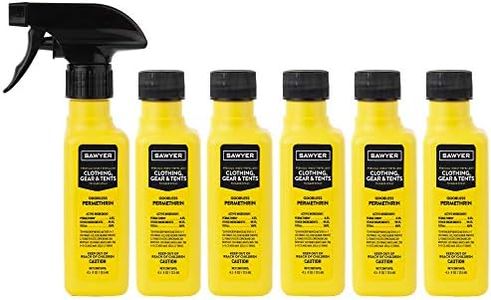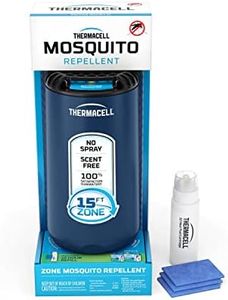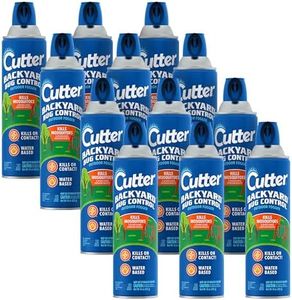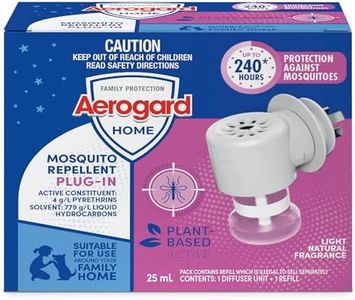We Use CookiesWe use cookies to enhance the security, performance,
functionality and for analytical and promotional activities. By continuing to browse this site you
are agreeing to our privacy policy
10 Best Insect Repellents
From leading brands and best sellers available on the web.By clicking on a link to a third party's website, log data is shared with that third party.
Buying Guide for the Best Insect Repellents
Choosing the right insect repellent can make a big difference in your comfort and safety, especially if you spend time outdoors or live in an area prone to insects like mosquitoes or ticks. The best product for you will depend on your specific concerns, how long you need protection, your skin sensitivity, and even the kinds of insects that are common in your area. Understanding the main features of insect repellents helps you find a product that is both effective and convenient to use.Active IngredientThe active ingredient in an insect repellent is the chemical that actually keeps insects away. Common active ingredients include DEET, Picaridin, IR3535, Oil of Lemon Eucalyptus, and natural oils like citronella. Stronger chemicals like DEET and Picaridin provide long-lasting, broad protection and are good for areas with lots of mosquitoes or where diseases are a concern. Natural ingredients may be more comfortable for those with sensitive skin or for use on children, but typically offer shorter protection times. To choose, consider how long you'll be exposed and your skin type—if you'll be out for several hours or need strong protection, opt for products with proven, longer-lasting chemicals.
Duration of ProtectionThis spec tells you how long the repellent will remain effective after application. Short durations (under 2 hours) are common for lighter, natural repellents, while longer durations (4–8 hours or more) come from stronger chemicals like DEET. For short walks in the garden or brief outings, shorter durations are fine, but for hiking, camping, or traveling to high-risk areas, longer protection ensures you don't need to reapply frequently.
Formulation TypeInsect repellents come in sprays, lotions, creams, wipes, and even wearable devices. Sprays and lotions are most common, offering easy, even coverage. Wipes are useful for travel, while creams may be better for targeted areas or dry skin. Wearable devices or bands provide limited local protection but can be convenient in some situations. Pick the type that matches your preference for ease of application, the area of skin you'll need to protect, and your convenience needs.
Suitability for Skin and AgeSome repellents are specifically labeled for use on children or for those with sensitive skin. This is important because young children and people with sensitive skin can have reactions to certain chemicals. Always check age restrictions and any warnings about allergies. Choosing a gentler formula for children, pets, or if you have sensitivities can prevent irritation and discomfort.
Target InsectsSome repellents specify which insects they are most effective against—mosquitoes, ticks, flies, or others. Not all products protect equally against all types of pests. If you’re concerned about diseases like Lyme disease or malaria, check that the product covers the specific insect involved. Review your local insect issues to pick a repellent effective against those pests.
Water and Sweat ResistanceWater and sweat resistance indicates if the repellent stays effective when you are active, swimming, or sweating. Regular repellents may wash off with water or sweat, so if you're engaging in sports, swimming, or working outdoors, look for products labeled as water-resistant for continued protection without frequent reapplication.
